
November 19
1887 Birth: Alfred Baeumler: ardent nationalist and old Party member who will be one of the leading academic proponents of National Socialism. Appointed Professor of Political Education at Berlin University in 1933, he will emerge as the chief liaison between the universities and Alfred Rosenberg's office of ideological education. Baeumler's main contribution will be the transformation of Nietzsche's thought into a myth at the service of the Nazi world-view, negating both Judeo-Christian morality and democratic values.
1915 World War I: Various: The Allies ask China British pilot makes heroic rescue: "In one of the most exciting episodes of the air war during World War I, the British airman Richard Bell Davies performs a daring rescue on November 19, 1915, swooping down in his plane to whisk a downed fellow pilot from behind the Turkish lines at Ferrijik Junction." [For further details, Click here.]
1919 The Treaty of Versailles and League of Nations are rejected by the US Senate by a vote of 55 in favor to 39 against, short of the two-thirds majority needed for ratification. President Wilson's hopes for a world governing organization are crushed.
1926 Leon Trotsky is expelled from the Politburo in the Soviet Union.
1928 Japan: After five years of publication, TIME magazine presents a cover portrait for the first time: Japanese Emperor Hirohito. He will be featured at least twice again over the years: as a warlord during World War II, and later as an elder statesman. [For further details, Click here.]
1933 The Gestapo confiscates the property of Albert Einstein.
1938 Various:
Polish Ambassador Lipski Three weeks after Munich and the annexation of Sudetenland, in a conversation with the Polish Ambassador to Germany, Jozef Lipski on the 24 October 1938, von Ribbentrop asked Poland to agree to the occupation of Gdansk [Danzig] by the Reich, and to grant the Germans autostradas [highroads] across Polish Pomerania to East Prussia. In a second conversation in Berlin on the 19 November 1938, he upheld these claims, rejected flatly by Poland. News of these conversations spread in diplomatic and journalistic quarters and the dispute between Poland and Germany became a topical question of European policy. The attitude of the Kremlin was by no means passive.
Volkishness: Karl Wolff visits Malvwine Wiligut (Wiligut/Weisthor's wife) at her home in Salzburg and learns of Weisthor's (Wiligut's) psychiatric history. Weisthor's stay in an Austrian asylum becomes an embarrassment for Himmler:
The interest of the Ahnenerbe in Germanic history and pre-history often put them at odds with others involved in such research. Chief among their rivals was Alfred Rosenberg, who was butting heads with Hermann Wirth even before the Ahnenerbe was created. Another rival of a sort was Karl Maria Wiligut, or "Weisthor", the head of the Department for Pre- and Early History in the RuSHA (Race and Settlement Office) and Himmler's personal Aryan mystic. The Ahnenerbe was forced to work with Wiligut due to the his close association with the Reichsfuehrer-SS, though they considered Wiligut and his associates to be the "worst kind of fantasist". This attitude was typical of the academics in the Ahnenerbe, who bemoaned occult interest in the topics they studied, feeling that it impeded the "science" of their research. It is interesting to note that Wiligut fell from power in 1939, just one year before the Ahnenerbe was officially made a department of the SS.
1940 World War II: King Leopold of the Belgians visits Hitler:
On November 19, 1940 King Leopold met Hitler at Berchtesgaden . . . . Leopold had clearly shown himself not reject[ing] a reduced sovereignty in exchange for the preservation of the dynasty. We must of course fit in the contemporary situation. Late 1940 Germany was still very strong and few doubted that Hitler [would dominate] Western Europe for a long time . . . . That Belgium should conclude agreements on the military plane and the plane of foreign policy was a price he was willing to pay. In his memoirs, however, the king claimed that his words through the interpreter Schmidt, who drafted a report of the interview, were placed in his mouth. Leopold argued that these words [were not spoken] by him, but by Hitler.
Hitler urges Spain to grab Gibraltar: On this day in 1940, Adolf Hitler tells Spanish Foreign Minister Serano Suner to make good on an agreement for Spain to attack Gibraltar, a British-controlled region. This would seal off the Mediterranean and trap British troops in North Africa.
Spain had just emerged from a three-year (1936-39) civil war, leaving Gen. Francisco Franco in dictatorial control of the nation. Although Franco had accepted aid for his Nationalist forces from the fascist governments of Germany and Italy during his war against the left-wing Republicans, he had maintained a posture of "neutrality" once the Second World War broke out. Two factors led the Caudillo, or chief of state, to reconsider this stance: (1) the fact that early Italian victories in Africa and German victories in Europe made a fascist victory more than just a possibility, and (2) his own desire to regain control of Gibraltar, a tiny peninsula south of Spain and a British colony. Toward this end, Franco began manipulating his own people to the point of exercising frenzied mobs to demand war against England to retake Gibraltar, which Spain lost during the War of Spanish Succession in 1704.
Gibraltar was a key strategic region, the only point of access to the Mediterranean Sea from the Atlantic Ocean and long a significant air and naval base for the United Kingdom. If Spain could occupy Gibraltar, it would cut Britain off from its own troops in North Africa and frustrate plans to drive back Rommel and his Afrika Korps, as well as stop any British plans to invade Italy. Hitler was keen on pushing Spain in this direction. But when the Fuhrer emphasized the need to move quickly, the Spanish foreign minister, on orders from Franco, insisted that Spain would need 400,000 tons of grain before it could wage war against Britain. Hitler knew this was merely a delaying tactic; Franco did not want to commit his country to the war, even as he allowed German subs to refuel in Spanish ports and German spies to keep tabs on British naval forces in Gibraltar.
But as the war began to turn against the Axis powers, so did Franco, who saw a future of negotiating trade deals with the Western democracies. The Caudillo began to cooperate with the Allies in a variety of ways, including allowing Free French forces to cross Spain from Vichy France to Resistance bases in North Africa. But the Allies saw Franco as a mere opportunist, and Spain was not allowed into the United Nations until 1955. (History.com)
1941 Various:
Countdown to Infamy: Tokyo to Washington: The condition outlined by them namely "After the peaceful polic[ies] of Japan have been made more definite" we imagine would naturally have reference to the question of the three-power treaty. It does not mean merely that Japan will withdraw her troops from Southern Indo-China, and that then the US will go back to conditions prior to the freezing act. It leaves the way open for the US to bring up rather complicated terms. On the other hand, the internal situation in our country is such that it would be difficult for us to handle it if we withdraw from Southern Indo-China, merely on assurances that conditions prior to the freezing act will be restored. It would be necessary to have a proposed solution that would come up to the B proposal. With the situation as urgent as it is now, it is of utmost importance that you play your hand for the amelioration of the situation, to the extent of the proposal in your message, then to push on for an understanding. The Ambassador did not arrange this with us beforehand, but made the proposal contained in your message for the purpose of meeting the tense situation existing within the nation, but this can only result in delay and failure in the negotiations. The Ambassador, therefore, having received our revised instructions, will please present our B proposal of the Imperial Government, and no further concessions can be made. If the US consent to this cannot be secured, the negotiations will have to be broken off; therefore, with the above well in mind put forth your very best efforts.
Holocaust: Nov-Dec: The extermination camp of Chelmno (Kulmhof) is set up in Warthegau (Poland):
The first commandant was Herbert Lange. The camp consisted of two parts: administration section, barracks and storage for plundered goods; burial and cremation site. It operated three gas vans using carbon monoxide. The camp began operations on December 7th, 1941 and ended operations on March 1943. It resumed operations June 23, 1944 and finally ceased operations January 17, 1945. The estimated number of deaths is 150-300,000, mainly Jews. Chelmno, also known as Kulmhof, was a small town roughly 50 miles from the city of Lodz. It was here that the first mass killings of Jews by gas took place as part of the Final Solution.
Holocaust: Gassing experiment: 1200 prisoners at Buchenwald are taken to the 'euthanasia' institute at Bernberg, and gassed:
Murder through showerheads was first perfected in Bernberg. The gas chamber was elevated by 2 steps so that the air inside the chamber itself would be thinner. The entrance was sealed by a thick door. The door had a window to allow the medical staff to observe the progress of people's deaths. An adjacent room provided 'respite' for the staff as they drank and played cards, awaiting the poison to take effect. 60-75 people were killed there a day.
Holocaust: Nov-Dec: The RSHA puts gassing-vans at the disposal of the Einsatzgruppen. Higher SS and Police-Leader Jeckeln: In December 1941, when I reported orally the completion of Himmler's order to execute by shooting the Jews of the Ghetto in Riga to him, Himmler told me that shooting was too complicated an action. In the shootings, one needed troops who were able to shoot, and that it had a bad influence on the men. So, said Himmler further, it would be best to destroy/liquidate/kill the people with gas-vans, which upon his order had been built.
World War II: War at Sea: The Australian warship Sydney engages the German raider Kormoran in a fierce battle in the Indian Ocean some 300 miles off the western coast of Australia. The Sydney is never seen again, with 645 presumed dead.
In open ocean SW of Carnarvon, Sydney spotted an unidentified merchant vessel and closed requesting identification. The HSK Kormoran, a disguised German raider, eventually opened fire and a battle ensued from which neither ship survived. For over 65 years, bitter controversy has raged over how and why Sydney sunk without a trace. Many factors have contributed to this controversy - the first is that the battle took place in a remote, deep-water location with no allied witnesses.
1942 World War II: Various:
Stalingrad: The Soviet counteroffensive begins: The battle was purely for ideological reasons. Hitler wanted to capture the city that bore Stalin's name, and Stalin wanted it held for the same reason. The military value was negligible; it did hold the key to the Caucasus Oil Fields, but Hitler could have surrounded and cut off Stalingrad and moved on to the Caucasus. Stalingrad became a vanity battle for both sides. While Paulus tried to break the Soviet salient on the Don, Marshal Georgi Zhukov and General Aleksandr Vasilevski took over the defense of Stalingrad. Twelve Soviet Armies were built up around the city. On November 19, the counterattack began, and by November 22, the Romanians on the Sixth Army's flanks were smashed. The Russians had encircled the Germans, cutting off 300,000 men. Paulus asked permission to abandon Stalingrad and retreat before the pincers closed, but Hitler refused.
FDR to Stalin: The menace of Japan can be most effectively met by destroying the Nazis first: you and I and Churchill are in complete agreement on this. Our recent battles in the South-west Pacific make the position there mere secure even though we have not yet eliminated attempts by the Japanese to extend their southward drive. The American and British staffs are now studying further moves in the event that we secure the whole south shore of the Mediterranean from Gibraltar to Syria. Before any further step is taken, both Churchill and I want to consult with you and your staff, because whatever we do next in the Mediterranean will have a definite bearing on your magnificent campaign and your proposed moves this coming winter. I do not have to tell you to keep up the good work. You are doing that, and I honestly feel that things everywhere look brighter.
1943 Holocaust: Inmates at the Janowska concentration camp near modern Lviv, Ukraine, stage an uprising that fails, after which the SS liquidate the camp, resulting in at least 6,000 deaths. [For further information, click here]
1945 Death: Three German war criminals:
As the New York Times report noted, they died "within sight"ť of the cell in that same prison where Adolf Hitler (serving easy time for the Beer Hall Putsch) wrote Mein Kampf. (Executedtoday.com)
1972 Bundesrepublik: West German Chancellor Willy Brandt wins a second term with an increased majority.
1977 Sadat visits Israel:
In an unprecedented move for an Arab leader, Egyptian president Anwar el-Sadat travels to Jerusalem to seek a permanent peace settlement with Israel after decades of conflict. Sadat's visit, in which he met with Israeli prime minister Menachem Begin and spoke before the Knesset (Parliament), was met with outrage in most of the Arab world. [For further information, click here]
1985 Cold War: Reagan and Gorbachev hold their first summit meeting:
For the first time in eight years, the leaders of the Soviet Union and the United States hold a summit conference. Meeting in Geneva, President Ronald Reagan and Soviet leader Mikhail Gorbachev produced no earth-shattering agreements. However, the meeting boded well for the future, as the two men engaged in long, personal talks and seemed to develop a sincere and close relationship. [For further information, click here]
Edited by Levi Bookin (Copy editor) Click to join 3rdReichStudies
FAIR USE NOTICE: This site may contain copyrighted material the use of which has not always been specifically authorized by the copyright owner. We are making such material available in our efforts to advance understanding of historical, political, human rights, economic, democracy, scientific, environmental, and social justice issues, etc. We believe this constitutes a 'fair use' of any such copyrighted material as provided for in section 107 of the US Copyright Law. In accordance with Title 17 U.S.C. Section 107, the material on this site is distributed without profit to those who have expressed a prior interest in receiving the included information for research and educational purposes. If you wish to use copyrighted material from this site for purposes of your own that go beyond 'fair use', you must obtain permission from the copyright owner.
Please note that the list-owner and the moderator are not responsible for, and do not necessarily approve of, the random ads placed on our pages by our web server. They are, unfortunately, the price one pays for a 'free' website.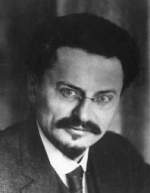
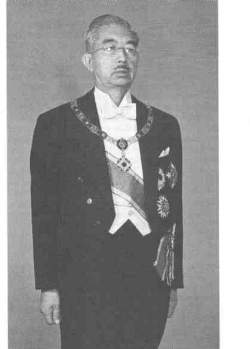
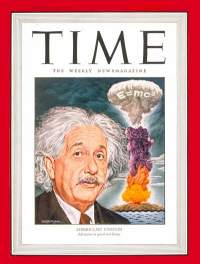
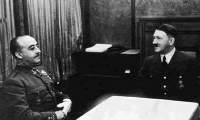
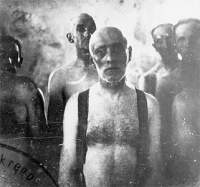
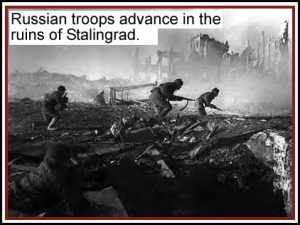

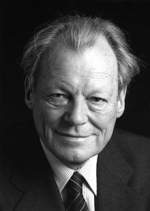
levi.bookin@gmail.com






